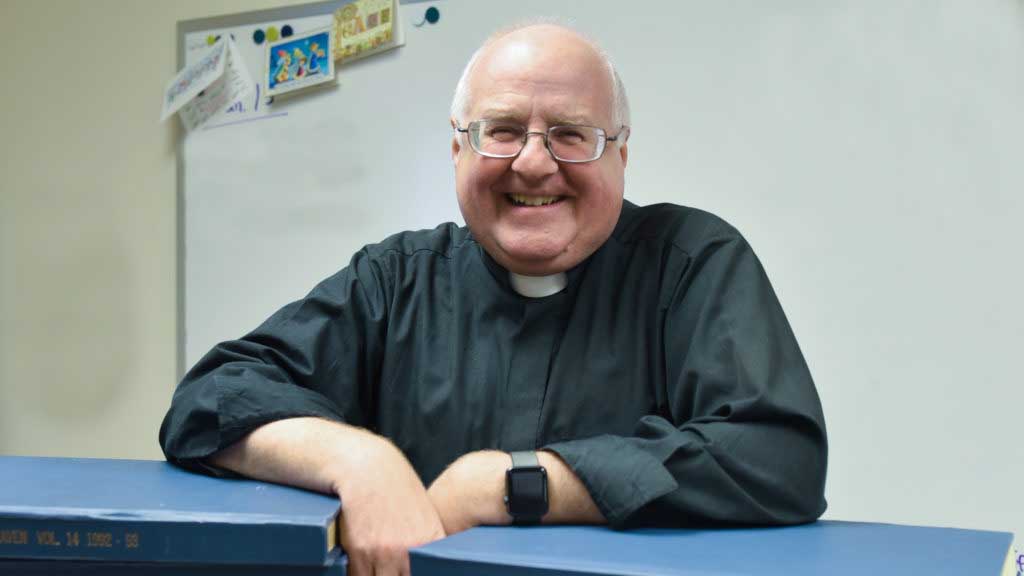
by Father Mark Goldasich
Christmas is a time for stories. While none can compare with the greatest story ever told — Jesus being born among us — stories can help make the continuing effects of Jesus’ birth understandable in our day.
Here’s one of those stories:
The leader of a certain Indian tribe encamped at the base of a mountain was dying.
The chief summoned his three sons and said, “I am dying and one of you must become the head of our tribe. I want each of you to climb our holy mountain and bring back something beautiful. The one whose gift is the most outstanding will succeed me.”
After several days, the sons returned. The first brought his father a flower which grew near the summit and was extremely rare and beautiful. The second son brought him an exquisite stone which was colorful, smooth and round, having been polished by rain and sandy winds.
The third son’s hands were empty. “Father, I’ve brought back nothing to show you,” he said. “As I stood on top of the holy mountain, I saw that on the other side was a beautiful land filled with green pastures and a crystal lake. And I have a vision of where our tribe could go for a better life.
“I was so overwhelmed by what I saw and by what I was thinking that I could not bring anything back.”
The father replied, “You shall be the tribe’s new leader, for you have brought back the most precious thing of all: the gift of a vision for a better future.” (Story found in Paul J. Wharton’s “Stories and Parables for Preachers and Teachers.”)
How empty were the hands of Jesus as he entered our world. Although he came as the long-awaited Messiah, in his life he accumulated no earthly possessions, commanded no army and had no place to lay his head. He didn’t overthrow the Roman oppressors or solve all the troubles of humanity, like poverty, injustice or sickness.
And his hands remained empty even after the Resurrection, save for one thing: the wounds of crucifixion in his hands, feet and side. Those wounds spoke of a vision of a better life — not only in this world, but in the life to come. It was a life of joy, but also sacrifice.
Jesus ushered in a world where the “blind regain their sight, the lame walk, lepers are cleansed, the deaf hear, the dead are raised, and the poor have the good news proclaimed to them” (Mt 11:5). This vision, begun with him, was passed on to his followers to continue . . . right up to this present time.
It’s not magnificent churches or beautiful works of religious art or music that ultimately matter, but rather how we make Jesus’ vision real — in our generosity, our inclusiveness and our compassion, particularly toward those most easily snubbed.
That’s why those empty hands of Jesus remain so important. He came into this world with nothing and left with nothing. His was a life lived for others. The inheritance he left didn’t consist of possessions, but of boundless love and compassion. And Jesus continues to rely on us to live this vision at Christmas and beyond.
I’ll close with a story of a family’s Christmas visitor. The guest asked 5-year-old Ruth, “Did you get everything you wanted for Christmas?”
Without hesitation, she replied, “No . . . but then, it’s not my birthday, it’s Jesus’.”
Oh, what wise words to remember.


